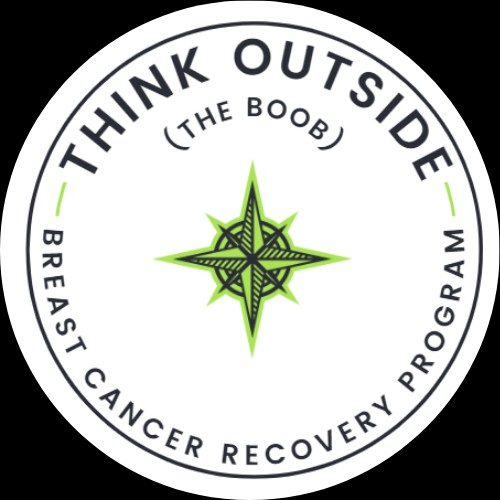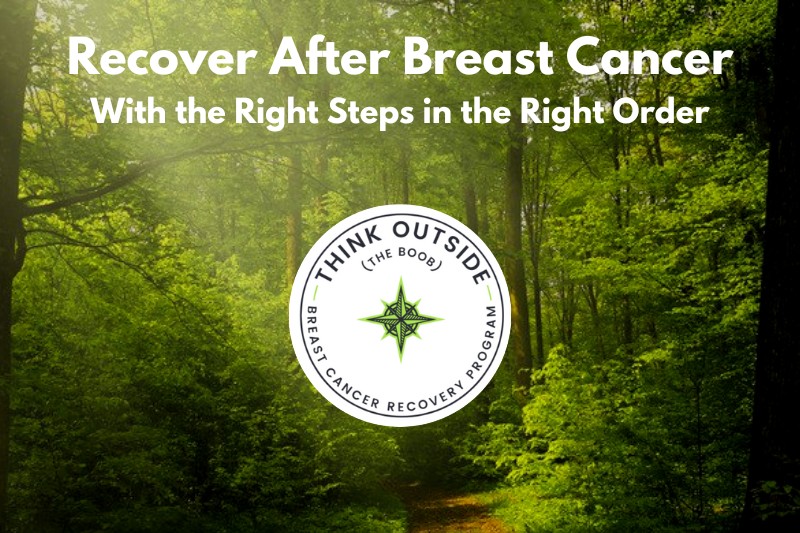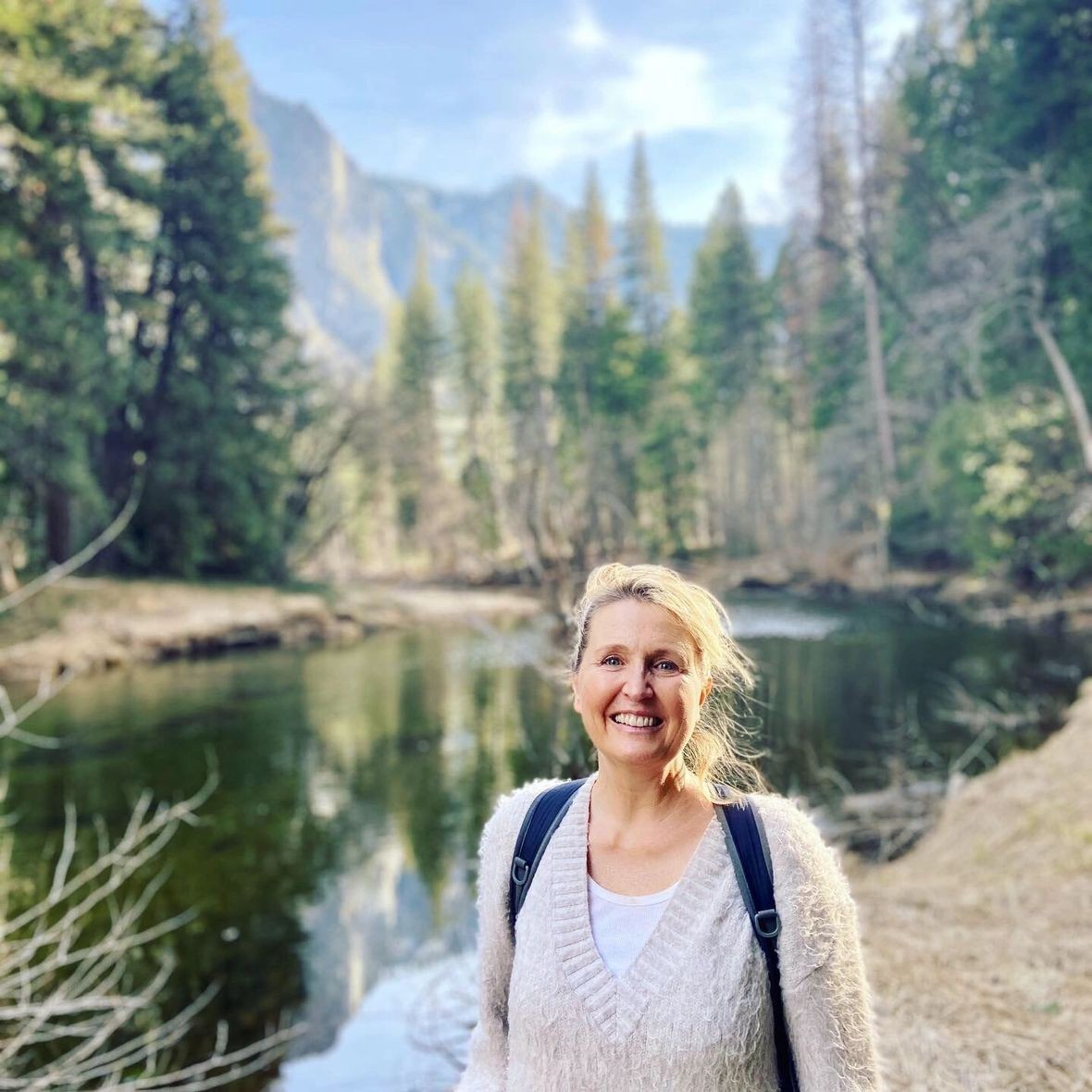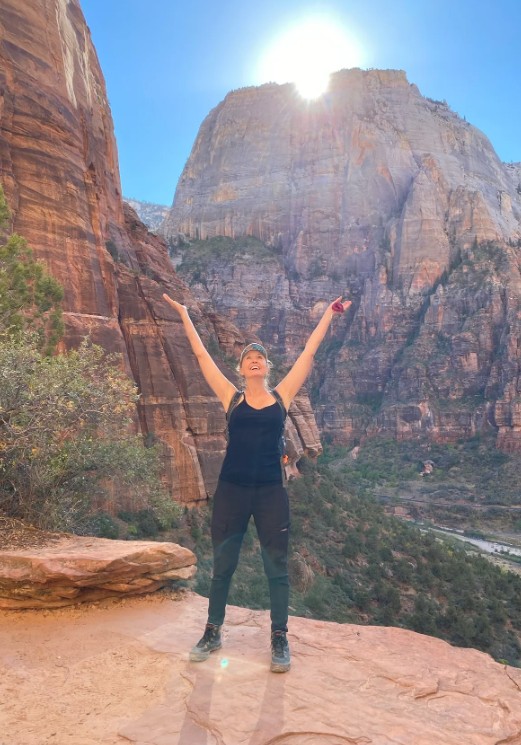We caught up with the brilliant and insightful Christi Nelson a few weeks ago and have shared our conversation below.
Christi , appreciate you joining us today. Was there a moment in your career that meaningfully altered your trajectory? If so, we’d love to hear the backstory.
Although I still had a year of adjuvant therapy to go and I was going through medical menopause at age 42, I had finished breast cancer treatment. I knew I’d be heading back to work full-time in a few months, but I was a completely changed person.
I went from having long, lush hair to a short bleached pixie cut, I was 30 lbs underweight, I suffered from brain fog and anxiety disorder, and had post-traumatic stress symptoms. I didn’t know how I was going to manage to adjust back to the life I had before. I felt completely lost.
I decided to hire a therapist who specialized in life transitions to help me figure out how to repair my body while I worked – without exhausting myself.
Over time, she learned that I was an earth science professional who loved the beach, the forest, and the mountains – and that I used to love hiking and being in nature, but had gotten away from that as I got more into the computer modeling side of my job.
She encouraged me to connect to nature as often as possible. She essentially gave me a nature prescription.
I began to hike again. I completed a local trail challenge. I declared that hiking was my “new sport”. I called myself a hiker. I learned to trust my body again and to keep moving forward one step at a time. In essence, I discovered something new about myself after cancer – and it was healing in so many ways.
I went back to work and she made sure I was getting outside as often as possible. She taught me to schedule time for self-care and ask for accommodations. I watched my energy increase, my muscle mass double, my stress levels drop and my foggy brain improve.
That was when I knew my nature-based therapy was working. Throughout 2 more breast cancer recurrences, I used my nature prescription to recover post-treatment and began to use my science background to research the benefits of nature on health. To my surprise, there were over 400 studies on this topic. I knew intuitively that my time in nature was working, but now it was backed by science!
What I didn’t realize in the beginnning, was that feeling LOST helped me get clear on my direction. That was the pivotal moment when I began my passion project.


Christi , before we move on to more of these sorts of questions, can you take some time to bring our readers up to speed on you and what you do?
While recovering from treatment after my third breast cancer diagnosis, I will never forget the day that I tried to put away a comforter in my son’s closet. As I lifted it to the top shelf, I realized I was too weak to do it and it came tumbling down on me.
Like many breast cancer survivors, my arm and chest strength were so far gone after treatment that I couldn’t lift a comforter over my head. The thought that went through my mind was “I’m only 45 years old and I don’t even have the muscles to put away a blanket? What the hell? I’m like a 45-year-old in an 85-year-old body!”
I knew it was time to do what I’d done after my last two diagnoses: figure out a plan to recover. But this time it felt different. Instead of feeling helpless, humiliated, and lost as I did before, I felt empowered.
I wasn’t just coming out of treatment for the first time with the doctor saying, “Congratulations, you’re done! Go live your life and I’ll see you in 3 months.” This time, I had years of recovery experience to reflect on and figure out how to help myself heal.
I’d been through breast cancer recovery two other times! It was time for me to tap my nature-loving science girl roots and research everything I’d done in the past that worked, so I could feel whole again.
My main survivorship goal at that point was to build back my chest and arm strength, but I also had an aspiration. I wanted to try something new and see if I could do it – I wanted to learn how to rescue stranded seals and volunteer for a seal rescue and response team.
On top of that, I knew from years of research that nature-based experiences calm the nervous system, get the body out of survival mode and into recovery mode, and help repair breast cancer side effects.
For me, adding time in nature meant spending more time in my happy place – the beach. I just needed a reason to go.
The seal rescue training seemed like a good solution. I could build strength, move forward toward my aspiration and spend healing time in nature. That sounded like living life to its fullest!
It turned out that I needed to be able to lift 30 lbs. to do it and had to commit to being at the ocean twice a month. The next training was in 8 weeks and that gave me enough time and motivation to build my strength up safely with my physical therapist.
Defining my survivorship goals and adding nature to my plan paved the groundwork for my healing adventure! Seal rescue training connected me to passionate people who had a common love for animals and the ocean. Plus, I got to explore different parts of the coast and journal and hike in my downtime.
Not only did my muscle mass and my overall wellness increase, but I felt empowered, strong, connected to myself and others, calm and happy.
At that point, I came to some interesting conclusions.
▶ There’s a way to feel empowered, create a sense of purpose, manage your fears, feel lighter, and move forward in your recovery.
▶ You can create a better quality of life, rediscover yourself and make your recovery an opportunity for joy and new experiences.
▶ There’s a big difference between recovering after breast cancer and recovering after breast cancer with a program and a plan.
I realized that it’s not necessary to feel lost after finishing treatment or spend years trying to figure out how to heal after breast cancer. Not only that, but breast cancer recovery can be a way to explore who you are now and go on a healing adventure. It can allow you to thrive while you heal, not just survive.
That lit a spark under me. I’d figured out that you can create a breast cancer recovery plan that works – and can be repeated – for any kind of breast cancer survivorship goal!
I wanted people to be able to focus on life after cancer – without always identifying as being a cancer patient. I wanted to teach them how to get out of survival mode and into recovery mode.
That’s when I wrote my Think Outside The Boob Breast Cancer Recovery Program.
Think Outside The Boob Breast Cancer Recovery Program is a FREE 9-week downloadable self-study course composed of audio and video lessons designed to give people exactly what they need to help eliminate the fear of recurrence, repair side effects, and create a new normal filled with purpose and adventure. It teaches them to learn the right steps in the right order and complete their personal recovery plan – without feeling lost and overwhelmed.
The program is divided into 3 parts:
1. Set yourself up for success, where you learn a recovery mindset, create a recovery schedule, and identify what’s bothering you the most after breast cancer to set your survivorship goals
2. Nature-based tools and practices to help you heal, where you find the nature fix to your side effect, use nature-based experiences to repair and rebuild the body from the inside out with exercise and nutrition. It’s also where you learn to practice in nature for mental, emotional, and spiritual health to help you process anxiety, fear, PTS, and brain fog.
3. Put it all together and complete your nature prescription and final recovery plan – that’s purpose-driven, time effective, and uses small attainable steps to reach your milestone (where you go on an adventure)!
The 9-module program includes transcripts, audio and video files, action guides, and tech demos, plus done-for-you resources, tools, trackers, planners, checklists, templates, and examples.
Students get private online community access to bi-monthly guidance calls and Q&A sessions with me plus encouragement and support from fellow Think Outsiders. They also get Think Outside (the boob) Bonus Content that includes Bonus Bundles, Informational Interviews, and Masterclasses taught by certified oncology nutritionists and exercise specialists.
I made the program free so people wouldn’t have to spend years of expensive trial and error – while living with pain, brain fog, chronic fatigue, depression or anxiety, PTS, or living in fear – while trying to figure out a post-treatment survivorship plan.
There’s zero financial risk so they have nothing to lose and everything to gain! My mission is to help as many people as possible recover and live life to its fullest. This is how I can do that.


What’s a lesson you had to unlearn and what’s the backstory?
Lesson I had to unlearn: I have to get back my old self.
Here’s the backstory:
I was a few months out of treatment. I had been in physical therapy and was making great progress, so I decided to finally get out and try stand-up paddling. Stand-up paddling is a sport where you balance on a long wide surfboard and you go out and paddle around on the water.
It’s supposed to be good exercise plus it was a reason for me to get out on the bay. It was something new I wanted to try, and I was really feeling great, so I made an appointment to do an introductory lesson.
That’s where I made my mistake. In the phone call, I did not address my concerns and limitations. I was feeling so good that I thought I was “back to normal”. Back to my my pre-cancer self.
So, I did the lesson with a small group. We paddled around and practiced the moves and then the group was divided into 2 separate, smaller groups. One decided to stay back in the Marina where the water was calm, the other group decided they had learned a lot and felt confident going out into the San Francisco Bay.
I decided that I’d rather be the worst person in the advanced group than the best person in the safe group. I so wanted to be “back to normal”. So, I paddled out on the San Francisco Bay.
I was exhausted when I came back. I struggled out on the Bay. The wind and the currents were strong, and I didn’t have the strength to paddle against them. I sat down on the board and rowed the whole way back. It was mentally and physically exhausting.
I did enjoy the fact that I accomplished my goal and I enjoyed the fact that I had a big adventure. But what I didn’t think about were my limitations, and that haunted me.
In fact, it haunted me for the next 5 days. I was so exhausted mentally and physically that I regressed to sleeping in my bed for five days straight. For one day of living I lost five days of living.
This is what happens when you don’t consider who you are now. This is the backward way to approach recovery. It’s how you end up stuck in survival mode. I was stuck on the couch for a week after trying to live my life as if I was “back to normal” for a day.
The forward approach would have been to call before the appointment and be honest with myself and the instructor about my current situation and my limitations. I could have stated that I was a breast cancer survivor or that I had a medical condition and that I had some questions.
I could have made sure that if I got too tired, there’d be a way for me to go back to the dock without disrupting the rest of the class. If I had done this, I would have come to the lesson with a plan and with the instructors’ support.
I would have ended up staying in the Marina confidently rather than braving the currents of the bay. I would’ve been able to focus on practicing maneuvers, paddling around on calm waters, and connecting with people. I would have come out of that class feeling confident in my ability and happy that I achieved my goal.
I would’ve had a great adventure; I would have learned a new sport that I enjoyed and discovered a new ability. I would have come home and then rested for a day because I allowed for time to rest in my recovery plan.
I wouldn’t have lost any more days for that one day of living. I would’ve come away from my day of stand-up paddling with exhilaration instead of exhaustion about the sport.
This challenged the way I thought about who I was and what I wanted in life after breast cancer.
Over time I’ve learned that it’s a disservice to think that you’re going to come out of treatment as the same person you used to be before breast cancer.
When you think things like,
• I don’t look the same as I used to.
• I want to feel like my old self.
• I want to get back to my old life.
• I want to be able to get fit easily like I used to.
You feel frozen in time and sad about your future. It’s impossible to go back to that person, but you’re not willing to accept the current person either. It looks like life has nothing to offer you.
If you assume your body is “back” to normal the minute it starts to feel better again. You act like your body is “back” to how it used to be, and you end up trying to do things you probably shouldn’t.
It’s important to acknowledge that after breast cancer, your body, mind, and spirit have been through the wringer. You can’t erase what happened to you. It wouldn’t make sense for you to start your recovery at pre-cancer status. You may have already tried that and gotten overwhelmed, scared, exhausted, hurt or discouraged.
Running a 10k race the day you finish chemo, tanning on the beach right after radiation, paddling out on the bay when you haven’t built back your strength, or raising your arm directly overhead a week after a mastectomy aren’t the best ideas. Instead, learn to start where you are now – with the limitations you have now.
You have changed. Your body has changed. Your outlook and approach to life need to change, too. You can’t do some of the things you used to be able to do, and you’ve discovered (or you will discover) new things that you can do. And all of this is okay.
There isn’t a “going back to normal”. There’s only starting from where you are now. So, do that. Start where you are now and move forward from here. If you approach your healing from this perspective, you’ll be a lot easier on yourself.
If you could go back in time, do you think you would have chosen a different profession or specialty?
Yes!
It’s funny, my choice of specialty has led me down so many paths. I studied what I loved in college (geology/earth science) and got to go camping, hiking, and spend time outdoors exploring. I got to use my analytical mind and apply the scientific method. I got to connect to Mother Earth and the people who loved her every day.
No matter what career I chose, it was always related to the earth sciences. I started as an engineering geologist, mapping faults and landslides in the Santa Cruz Mountains in CA.
Then I decided I wanted to be a civil servant for a bit. I went back to school and got my teaching credential and taught high school earth science and chemistry. As a bonus, that conquered my extreme shyness in front of crowds.
As fun as teaching was, I was itching to apply my skills to something new. I decided to get certified remote sensing and satellite imagery and study Geographic Information Systems (GIS) which is data-driven computer mapping and modeling. That path got me into the tech world of cartographic design, programming, web mapping, and databases while I continued to work with naturalists, geologists, and water resources engineers.
I landed a job where I got to apply all of these skills, plus I got to design curriculum and do technical instruction.
Then I got breast cancer. Twice.
Eventually, I had to medically retire because of cancer-related cognitive dysfunction, where I could no longer focus on the small important details of programming and database management.
I decided to make recovery my full-time job. I incorporated the nature-based therapy methods I’d been using since 2014 and sought out an additional road to recovery practicing yoga and mindful meditation.
In 2017 I had No Evidence of Disease (that’s the best you can hope for) for an entire year and I decided to stop doing targeted chemotherapy infusions.
Over time, I felt like my next step to healing was to give back to other breast cancer survivors. I didn’t want to totally focus on cancer – I wanted to focus on making life after cancer an adventure. This is when I began to create Adventure Guides and develop an online program that taught people to write a personal plan that incorporated nature-based experiences WHILE they recovered.
All my skills and specializations have led to this point in my life. I know how to design a curriculum, I have back end computer and web programming skills, I know how to run beta tests and analytics, I’m not shy to speak in front of crowds or a camera anymore. I’ve applied the scientific method to my research behind the benefits of nature and health. I know how to prepare safely for a proper outdoor adventure or even a yoga retreat. I know how to facilitate group sessions and teach lessons.
Multiple breast cancer diagnoses and treatments have given me the gift of time to apply the scientific method to each recovery. I found patterns of what worked over time and used them to create the framework of my program.
I’ve been re-diagnosed, but if I hadn’t the only thing I might do differently is host outdoor group adventures myself!
Contact Info:
- Website: https://thinkoutsidetheboob.com/home
- Instagram: https://www.instagram.com/christi_thinkoutside_nelson/
- Facebook: https://www.facebook.com/thinkoutsidetheboob/
- Linkedin: https://www.linkedin.com/in/christi-nelson-1589a111


